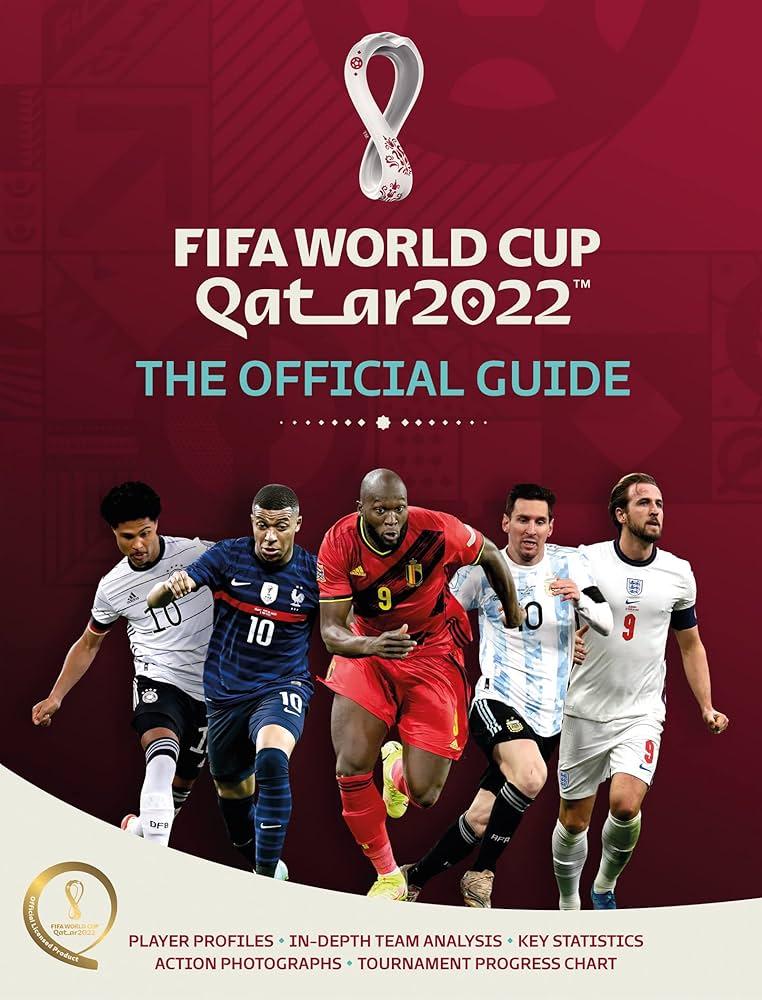As the world tuned in to the FIFA world Cup 2022, the tournament not only showcased the beatiful game but also highlighted a remarkable shift in how technology is transforming the sport. From advanced officiating tools to immersive fan experiences,this year’s event set a new standard for integrating cutting-edge innovations into football. With initiatives aimed at improving gameplay accuracy, enhancing viewer engagement, and ensuring equitable competition, the World Cup served as a testing ground for the future of soccer. In this article, we explore the game-changing tech innovations unveiled during the tournament, examining their implications for the sport and the broader landscape of athletic competition.
Table of Contents
- Revolutionizing the Game with VAR 2.0 and Enhanced Officiating Technologies
- Fan Experience Transformed Through Immersive Augmented Reality Applications
- Data Analytics at the Forefront: How AI is Shaping Team Strategies and Performance
- Sustainability Innovations: greener Solutions for Future World cups and Beyond
- Wrapping Up
Revolutionizing the Game with VAR 2.0 and Enhanced Officiating Technologies
In a significant leap towards fairness and precision in football, the 2022 FIFA World cup showcased the much-anticipated VAR 2.0 system. this upgraded technology not only enhances the ability of referees to make accurate decisions but also integrates *real-time data analysis* and *artificial intelligence* to streamline officiating processes. The system allows for quicker reviews, ensuring that crucial moments—such as goals, penalty decisions, and red cards—are evaluated with unparalleled accuracy. Fans and players alike can expect a more dynamic and less interrupted viewing experience, with technology working seamlessly in the background to keep the game flow intact.
Moreover, enhanced officiating technologies introduced in the tournament included the use of *automated offside detection*. This innovative approach utilizes advanced camera systems to precisely determine player positioning with pixel-level accuracy, reducing human error and debate over close calls. Key features of this technology include:
- Real-time alerts to assist on-field referees
- Instant replay options for players and coaches
- Enhanced fan engagement through live updates and analytics
These advancements not only elevate the quality of play but also aim to build trust among fans in officiating decisions. As the tournament progresses, the impact of these technologies is expected to resonate far beyond the pitch, paving the way for their adoption in leagues and tournaments worldwide, thereby setting a new standard for officiating excellence.
Fan Experience Transformed through Immersive Augmented Reality Applications
The FIFA World Cup 2022 redefined the way fans engage with the sport, bringing the excitement of the game to life through immersive augmented reality (AR) applications. Fans could experience the thrill of matches like never before, stepping into a virtual stadium environment from the comfort of their homes. These interactive experiences allowed supporters to not only follow the action in real-time but also participate in various activities, including virtual meet-and-greets with players, behind-the-scenes tours, and interactive skill challenges. with the help of smart glasses and AR-enabled devices, these applications elevated the viewing experience, making it feel as though fans were right there on the pitch.
key features of the augmented reality experience included:
- Live Match Stats: Fans accessed real-time statistics overlaying the live game for a more informed viewing experience.
- Player Tracking: Users could follow specific players,with AR graphics highlighting their movements and contributions during matches.
- Fan engagement Activities: Interactive quizzes and games allowed fans to win exclusive merchandise and digital collectibles.
| Feature | Description |
|---|---|
| Virtual Stadium Tours | Explore iconic stadiums and relive previous World Cup matches in a virtual environment. |
| Enhanced Commentary | Customizable audio commentary available in multiple languages, catering to fans across the globe. |
Data Analytics at the Forefront: How AI is Shaping Team Strategies and Performance
As teams prepared for the FIFA World cup 2022, the influence of data analytics became increasingly evident in shaping game strategies and enhancing player performance. Coaches and analysts harnessed predictive modeling and real-time data tracking to evaluate player movements, fatigue levels, and even the psychological aspects of performance. By leveraging machine learning algorithms, teams could dissect match data and simulate countless scenarios, enabling them to make swift tactical adjustments during games. This technological edge allowed for a more nuanced understanding of opponents, frequently enough leading to unexpected formations and plays that caught rivals off guard.
Furthermore, these innovations have led to a more collaborative environment among technical staff, players, and coaches. the emphasis on data-driven decision-making has resulted in various key benefits:
- Improved Player Health: Monitoring wear and tear to prevent injuries.
- Enhanced Scouting: identifying talents through analytical profiles.
- Strategic Play Analysis: Reviewing past matches to inform future strategies.
- Fan Engagement: Utilizing data to enhance viewer experiences with real-time stats.
| Technology | Impact on Teams |
|---|---|
| AI Player Tracking | Provides insights into player positioning and movement patterns. |
| Wearable Tech | Monitors player health metrics and performance levels. |
| Video Analysis Software | Facilitates the breakdown of match footage for strategic insights. |
Sustainability Innovations: Greener Solutions for Future World cups and Beyond
As the world tuned in to the FIFA World Cup 2022, significant focus was placed on the innovations aimed at reducing the environmental footprint of this global sporting event. the tournament saw the introduction of sustainable stadium designs that incorporated energy-efficient systems,waste management initiatives,and water conservation techniques. key features included:
- Solar Panels: Installed on roofs to harness renewable energy.
- Smart Water Management: Systems designed to recycle and minimize water usage.
- Eco-Friendly Materials: Utilization of sustainable construction materials for venues.
In addition to architectural advancements, FIFA made strides in leveraging technology to enhance sustainability practices. The use of digital ticketing systems reduced paper waste substantially,while the integration of carbon offset programs aimed to mitigate the carbon footprint generated by travel and event activities. Furthermore, the World Cup implemented an innovative waste separation system, making it easier for fans to recycle through strategically placed bins. The combination of these efforts reflects a growing commitment to ensure that major sporting events not only entertain but also promote environmental stewardship, setting a precedent for future competitions.
Wrapping up
As the FIFA World Cup 2022 draws to a close, the tournament has not only celebrated the world’s passion for football but has also heralded a new era of technological innovation in the sport. From advanced player tracking systems to augmented reality fan experiences, these groundbreaking technologies promise to redefine how audiences engage with the game. The prosperous implementation of these innovations in such a high-stakes environment points to a future where technology and sport are more intertwined than ever before. As we reflect on this remarkable event, it is indeed clear that the advancements showcased in Qatar may well shape the tactical strategies of teams and the ways fans interact with football for years to come. The legacy of the FIFA World Cup 2022 extends beyond the pitch, marking a pivotal moment in the evolution of sports technology on the global stage.





